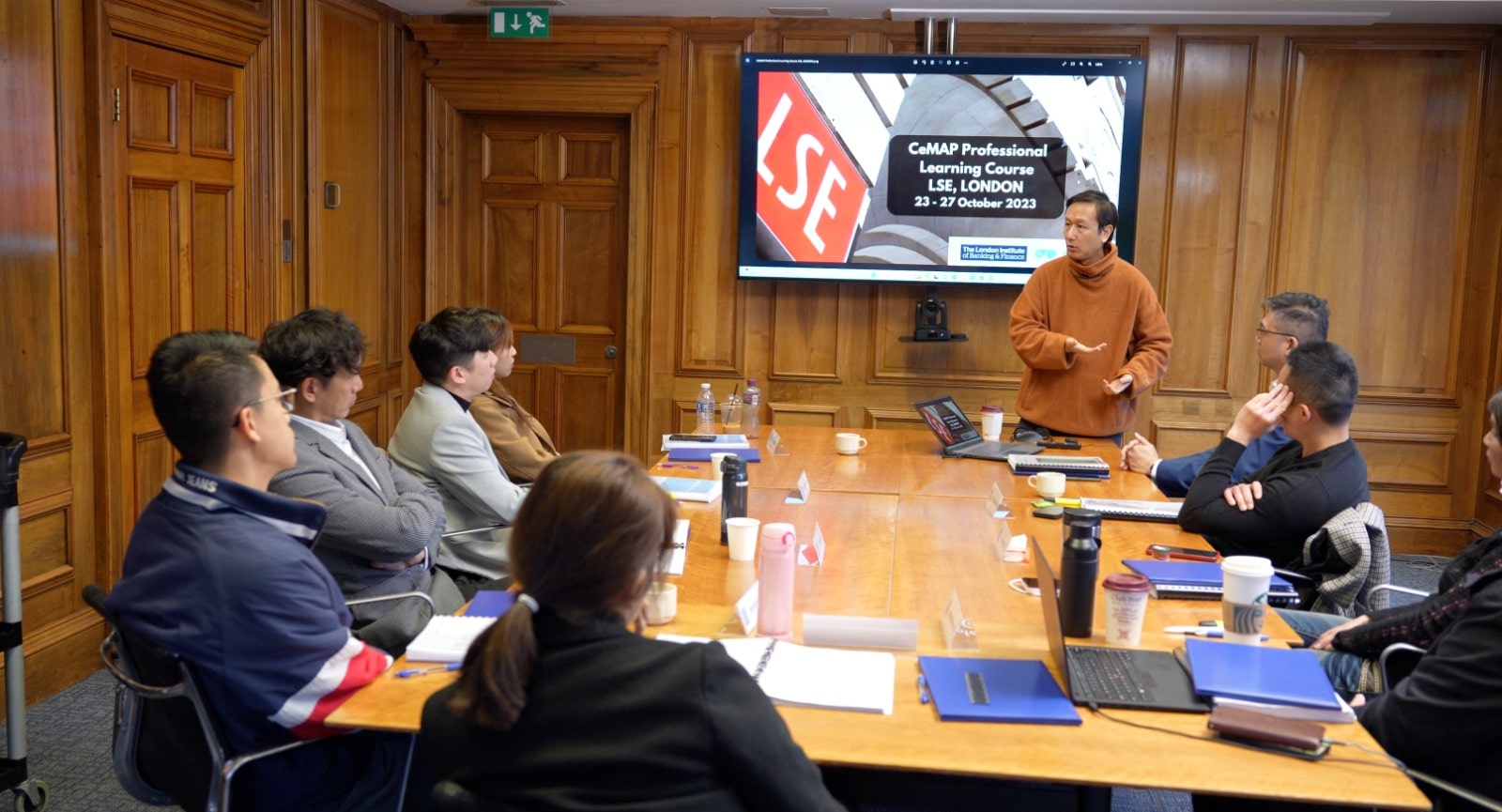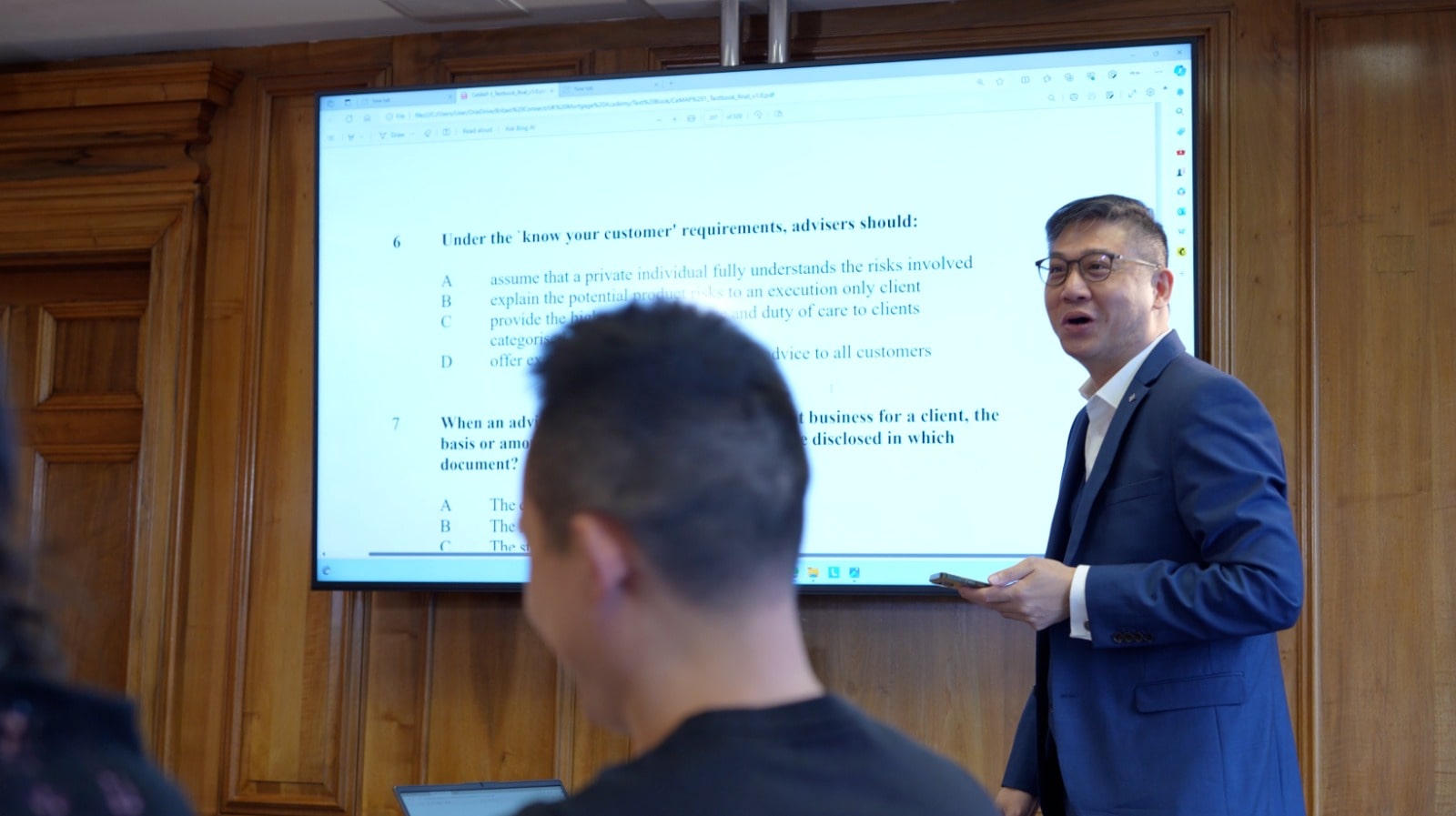CeMAP training courses help you start a new career in finance

CeMAP training courses help you start a new career in finance
What is UK Mortgage CeMAP?
Imagine you are becoming a skilled navigator in the financial industry, and your CeMAP certification is your trusted compass, guiding you through the waves of UK mortgage advice and lending.
CeMAP, or the Certificate in Mortgage Advice and Practice, is a qualification tailored for UK mortgage advisors. It is highly regarded in the financial sector, demonstrating to employers and clients that you have mastered the core knowledge of mortgage advice.
Starting a CeMAP training financial course does not require a financial background—this course is open to everyone ready to learn. If a university degree is like a multi-purpose toolbox, then CeMAP is a specialized wrench, perfect for tightening every detail in the mortgage industry.
The Fundamentals of CeMAP
Here’s the English translation with the HTML code preserved:
The Fundamentals of CeMAP
The CeMAP qualification is divided into three main modules:
Module 1: Introduction to Financial Services, Environment, and Products
Module 2: Policies and Practices Affecting Mortgages
Module 3: UK Mortgage Application
Each module is designed not only to provide you with theoretical knowledge but also the practical skills needed as a mortgage advisor.
Many people mistakenly believe that obtaining the CeMAP certificate is a one-time achievement. However, like other branches of the financial sector, the mortgage industry is constantly evolving, and you must stay up to date. Continuous professional development is key to keeping up with new regulations and products.
Practical Application
When advising clients, remember that every client is unique. Of course, the technical knowledge you gain from CeMAP is crucial, but personalized advice is equally important. It’s akin to being a tailor, crafting mortgage advice to fit the specific needs of each client.
Techniques and Methods
There is no one-size-fits-all process for UK mortgage advice. You need to continuously refine your skills, such as knowing when to recommend a fixed-rate mortgage, understanding the nuances of buy-to-let properties, or mastering the complexities of refinancing.
Implementing best practices begins with a solid foundation gained from CeMAP training. As you grow your knowledge, connect with industry professionals, and always prioritize your clients’ best interests, you’ll continue to advance.
What is a University Degree?
A university degree is often considered the golden ticket to entering the professional world. It’s like a chef’s hat, symbolizing years of study and expertise in a specific field, whether it’s English literature, engineering, or medicine. Earning a degree means dedicating three to four years (or sometimes longer) immersed in lectures, seminars, and exams. It’s a credential that demonstrates to employers your intellectual and skill-based development in a specific discipline.
Essentially, a university degree signifies a broad and in-depth understanding of complex subjects. You’re not just memorizing facts; you’re learning to think critically, solve problems, and communicate effectively.
However, it’s not just about academics. University life is filled with opportunities to join societies, network, and acquire transferable skills. It’s a holistic experience that combines personal growth and academic achievement.
Common Mistakes and Misconceptions
A common misconception is that a degree is the only path to success. Many successful careers are built without traditional degrees, relying instead on vocational training, apprenticeships, or practical experience.
Conversely, having a degree doesn’t guarantee success. You still need to combine it with hard work, networking, and sometimes a bit of luck.
Techniques, Changes, and Methods
Degrees come in various forms—from bachelor’s to master’s to doctoral degrees, each offering different levels of expertise. The path you choose depends on your career aspirations and the level of specialization required.
Part-time, online, and distance learning options provide greater flexibility but require strong self-discipline. Whatever the mode of study, your learning journey should align with your career goals and personal circumstances.
Integrating Best Practices
To maximize the value of a degree, it’s best to combine theoretical knowledge with practical experience. Applying for internships, participating in work placements, or attending financial courses are highly valuable opportunities that allow you to bridge the gap between academic learning and real-world practice.
Additionally, tailor your learning experience by selecting training courses or modules that support your future career path. Actively engage with mentors and peers, attend industry seminars, and seek feedback proactively—these are effective ways to enrich your understanding and inspire curiosity.

Comparing CeMAP Courses
When researching qualifications to become a UK mortgage broker, you may wonder how the Certificate in Mortgage Advice and Practice (CeMAP) compares to a university degree. Let’s explore the differences in their training programs and how they align with your goals.
The CeMAP qualification is a specific, industry-recognized certificate that equips you with all aspects of mortgage advice. Think of it as a professional toolkit designed to provide you with:
– Legal and regulatory requirements of UK mortgage advice
– Understanding the mortgage application process
– Knowledge of various UK mortgage products and services
– Skills to assess clients’ financial situations
CeMAP essentially targets a specific sector within the financial services industry, functioning like an accelerated professional finance course tailored to train UK mortgage experts.
In contrast, a university degree typically covers a broader scope of knowledge. It is akin to a garden of multidisciplinary knowledge—economics, business, finance, and even real estate. The curriculum includes:
– A wide theoretical foundation in the chosen field
– Research and analytical methodologies
– In-depth discussions and case studies
– Electives that allow you to specialize or expand your learning
A common misconception is that one is inherently better than the other. However, the question is not which is superior but which is more suitable. CeMAP is like a zoom lens providing a close-up view of the mortgage world, while a degree offers a wide-angle lens covering the larger business or financial environment.
Here are practical tips to succeed on your chosen path:
– Use case studies and real-life scenarios to bridge theory with practice.
– Gain hands-on experience through internships or placements.
– Stay adaptable and continuously improve your skills in the fast-evolving financial environment.
Different techniques and methods will vary depending on your career stage and the specific mortgage environment you operate in. For aspiring UK mortgage brokers, starting with CeMAP can provide a quick entry into the field. For those aiming for strategic or comprehensive financial roles, a degree may offer the broad-based foundation needed.
Recognition and Certification
Understanding the recognition of CeMAP and university degrees may initially seem confusing, but it’s simpler than it appears. CeMAP can be seen as a passport to the UK mortgage advice sector, while a university degree is like a world travel ticket, offering broader opportunities beyond this niche.
CeMAP, or the Certificate in Mortgage Advice and Practice, is formally recognized by the Financial Conduct Authority (FCA). This means holding a CeMAP qualification qualifies you to provide mortgage advice in the UK—it’s your golden ticket. In contrast, the recognition of a university degree varies by field and institution, and not all degrees are specifically tailored to mortgage advice.
A common misunderstanding is that one must be better than the other. In reality, the more important consideration is their alignment with your goals. CeMAP helps you quickly prepare for practical advice, while a degree may offer more comprehensive financial knowledge.
Tips for leveraging these pathways:
– **CeMAP**: Focus on case studies and hands-on experiences to build practical knowledge. Experience is key.
– **University Degree**: Choose programs that include real estate or financial modules for targeted advantages, and consider internships at financial planning firms to gain relevant experience.
Different contexts require different approaches. If you’re transitioning careers and looking to enter the mortgage advice field quickly, CeMAP’s specialization is unmatched. If you aim to develop broadly in the financial industry, investing time in a degree provides a well-rounded foundation.
Incorporating these practical methods into your career path should be as strategic as choosing a mortgage. For CeMAP, make the most of exam prep courses and resources. For the degree route, connect with professionals, attend financial seminars, and stay updated on industry trends.
Remember, your certification is merely a tool. Whether CeMAP or a university degree, how you use these tools will define your career journey. Choose the tool that aligns with your aspirations, and remember that in the financial world, lifelong learning is your strongest ally.

Career Prospects and Opportunities
When you envision your future as a UK mortgage advisor, you might find yourself grappling with this question: Is CeMAP truly equivalent to a university degree? You may have heard various debates, but let’s set aside the noise and focus on what really matters—your career trajectory.
Think of CeMAP as your professional toolbox, filled with everything you need in the mortgage industry, like having a universal key to unlock every door on your career path. In contrast, a university degree is more like a Swiss Army knife; it’s versatile, equipped with a range of tools, not only suited for the UK mortgage sector but also preparing you for multiple industries.
CeMAP equips you with a professional hallmark to enter the market. Employers see this qualification as proof of your expertise in the mortgage sector, meaning you can start climbing the career ladder from day one with a clear and direct path to success.
On the other hand, a university degree broadens your career horizons, going beyond mortgage advice. If you ever decide to transition into other financial services or even outside the finance sector, having a degree can open those doors.
A common misconception is that university education always trumps professional qualifications. This isn’t the case. Both pathways can lead to successful careers—the key is aligning your choice with your ultimate goals. Focus on the details and carve out your unique path.
**Tips for Navigating Your Career Development:**
– **Gain Practical Experience:** Internships are crucial.
– **Expand Your Network Continuously:** Your next opportunity could stem from a chance encounter.
– **Regularly Upgrade Your Skills:** This industry is dynamic—don’t get left behind.
If you’re determined to become a UK mortgage advisor, mastering various skills to excel in advisory roles is essential. Mortgage advice isn’t a one-size-fits-all approach. Every client is unique, and you’ll need to tailor your advice to suit different situations. It’s like being a chef; sometimes, you follow the recipe to the letter, and other times, you adjust based on your diner’s taste preferences.
Incorporating CeMAP into Your Career:
Starting with CeMAP? Learn pragmatically, focusing on specific areas like understanding UK mortgage regulations or developing client advisory skills. If you lean towards a degree, select one that complements your interest in finance, equipping you with a broader knowledge base.
Conclusion
Choosing between CeMAP and a university degree depends on your career aspirations in the finance sector. If you aim to quickly become a UK mortgage advisor, CeMAP offers a direct and focused pathway. For those seeking broader opportunities, a university degree might unlock more options. Remember, it’s not about which is better but which aligns with your career goals.
Regardless of your choice, actively seek experience and enhance your skills to stand out in the competitive finance industry. Success in either pathway depends on your commitment to learning and your ability to adapt to the ever-changing demands of the industry.
Search
Popular





